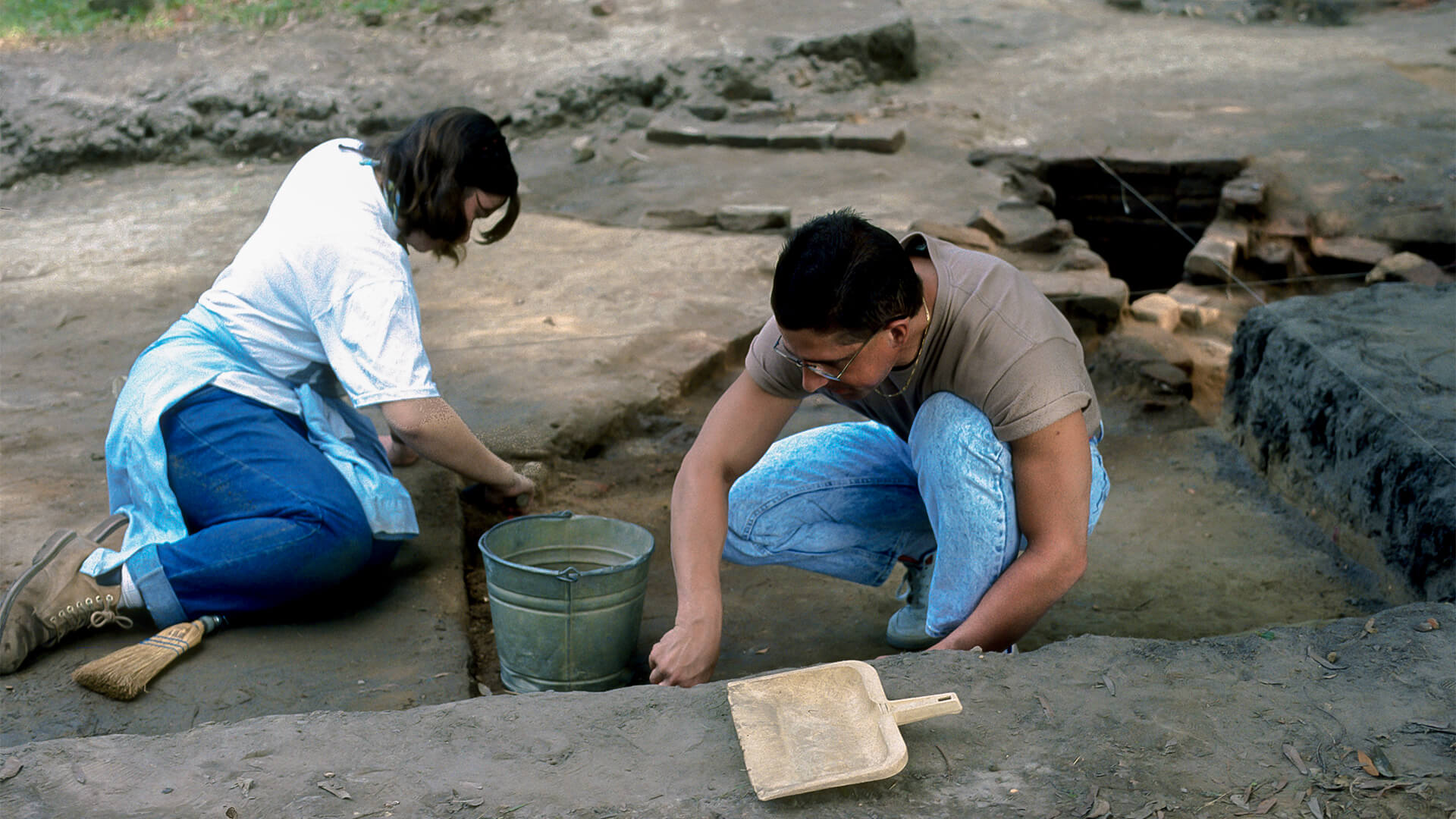- November 26, 2019
- By Maggie Haslam
A new grant will allow a University of Maryland professor and graduate students to complete his decades-long study of the former Virginia plantation where the granddaughter of Pocahontas lived.
The Chesapeake Material Cultural Studies Grant from the Conservation Fund will support completion of the documentation and study of the Kippax Plantation Archaeological Site, a project led by Donald Linebaugh, historic preservation professor and interim dean of the School of Architecture, Planning and Preservation.
Linebaugh’s research at the 17th-century plantation has shed light on the trade history between Native Americans and early European settlers as well as the lives of African American slaves during that time. It was home to Col. Robert Bolling and his wife, Jane Rolfe, granddaughter of John Rolfe, who introduced tobacco as a cash crop to the Virginia colony, and Pocahontas, the Native American woman whose interactions with the Jamestown settlement provided fodder for generations of historians and mythmakers.
 “The Kippax Plantation site tells an important story in the narrative of early American settlement,” Linebaugh said. “We are thrilled to have the support from the Conservation Fund on such a meaningful regional project.”
“The Kippax Plantation site tells an important story in the narrative of early American settlement,” Linebaugh said. “We are thrilled to have the support from the Conservation Fund on such a meaningful regional project.”
He has been working at the site on the southern banks of the Appomattox River for more than 30 years, since he was at the College of William and Mary; it has been an ongoing project in Maryland’s Historic Preservation Program since 2004 and has introduced the processes and techniques of archeological preservation to dozens of graduate students.
The new grant will support laboratory processing and the development of a digital catalog, ancillary artifact studies and comparative analysis of cultural artifacts found on the site, including pottery, buttons and tools. The team’s findings will result in a final report and manuscript in 2020.
The Conservation Fund—a national nonprofit dedicated to providing environmental solutions that make economic sense for communities—presented grants to the University of Maryland and 10 other research, education and historical institutions and specialists to support the conservation, preservation and study of cultural artifacts from the Chesapeake region dating back to the 17th and 18th centuries.
The Chesapeake Material Cultural Studies Grants, which range from $15,000 to $25,000, will help further research and expand knowledge of artifact collections from previously excavated archaeological sites—at Jamestown, Martin’s Hundred, Carter’s Grove, Kingsmill and other locations in the Chesapeake region—to enable a better understanding and interpretation of the colony’s first settlers and their response to the new environment and climate.
“American history is intrinsically connected to the land. In Virginia, and especially in the Chesapeake region, our land can tell a variety of stories going back multiple centuries,” said Heather Richards, Virginia state director for the Conservation Fund. “While we at the Conservation Fund focus on protecting the places where history happens and conserving important natural resources, we depend on our peers in the archeological field to research and interpret how human lives intersected with these places. We are honored to support the University of Maryland’s ongoing work.”
